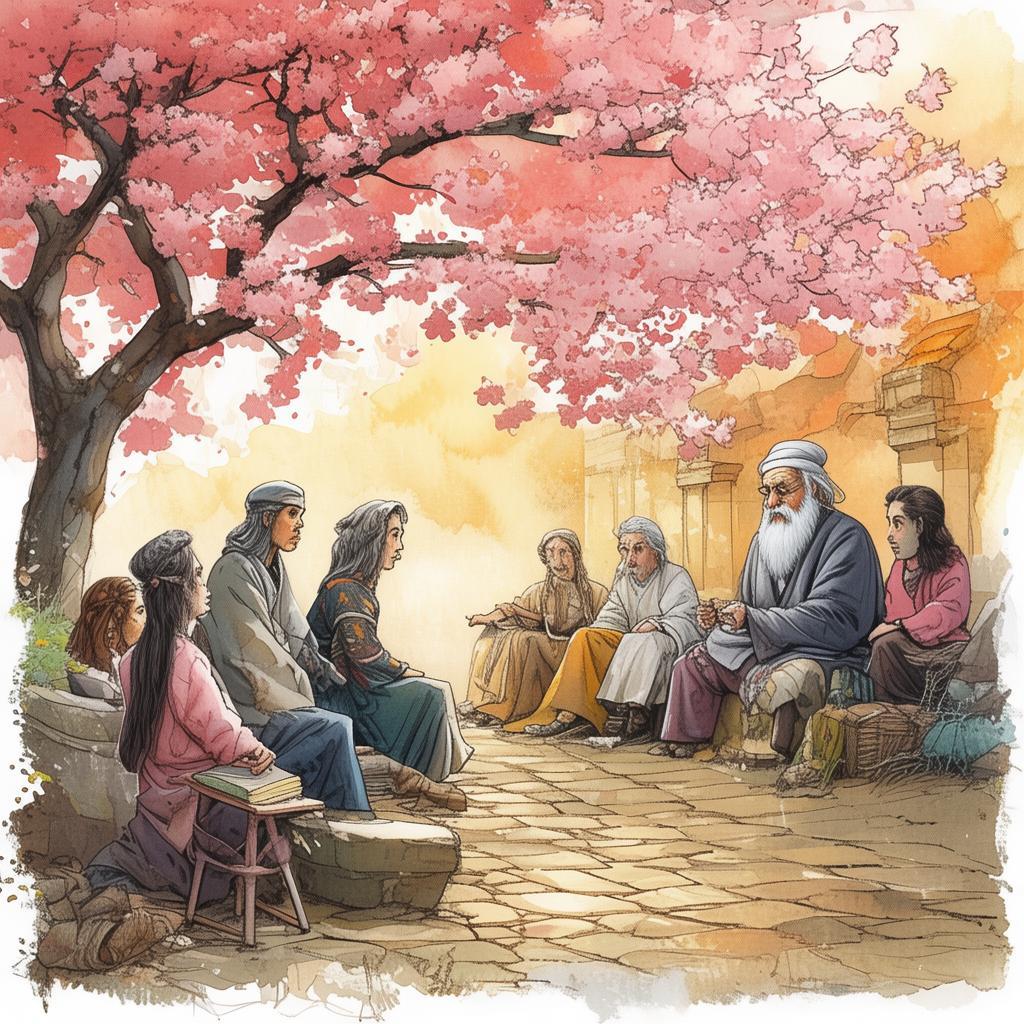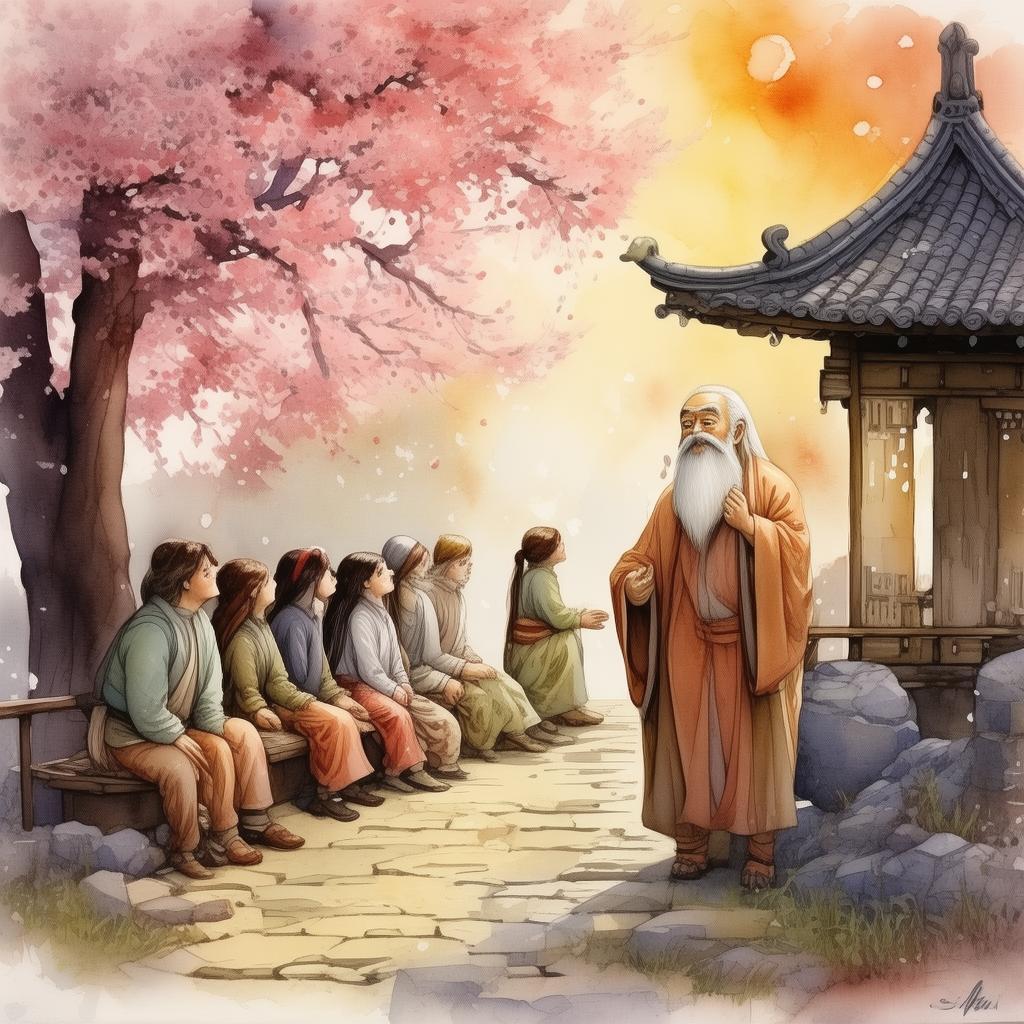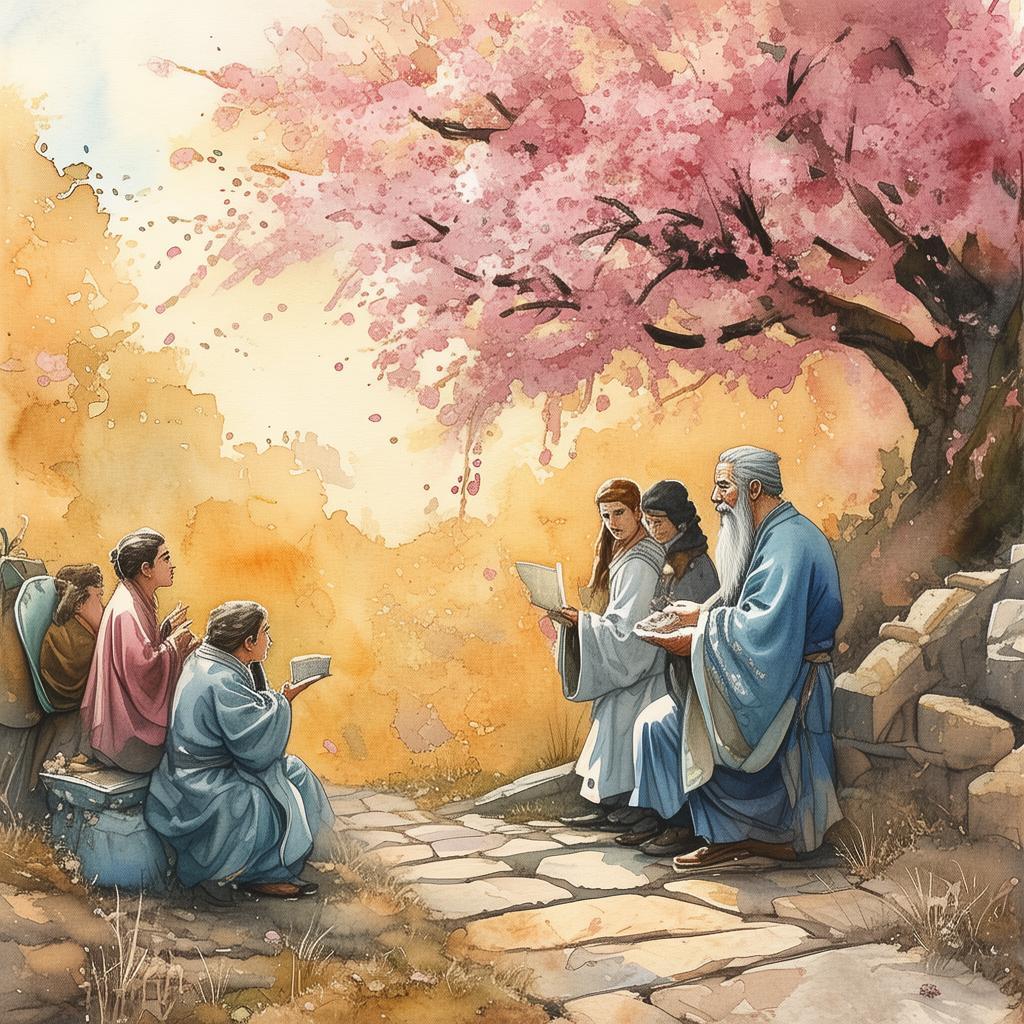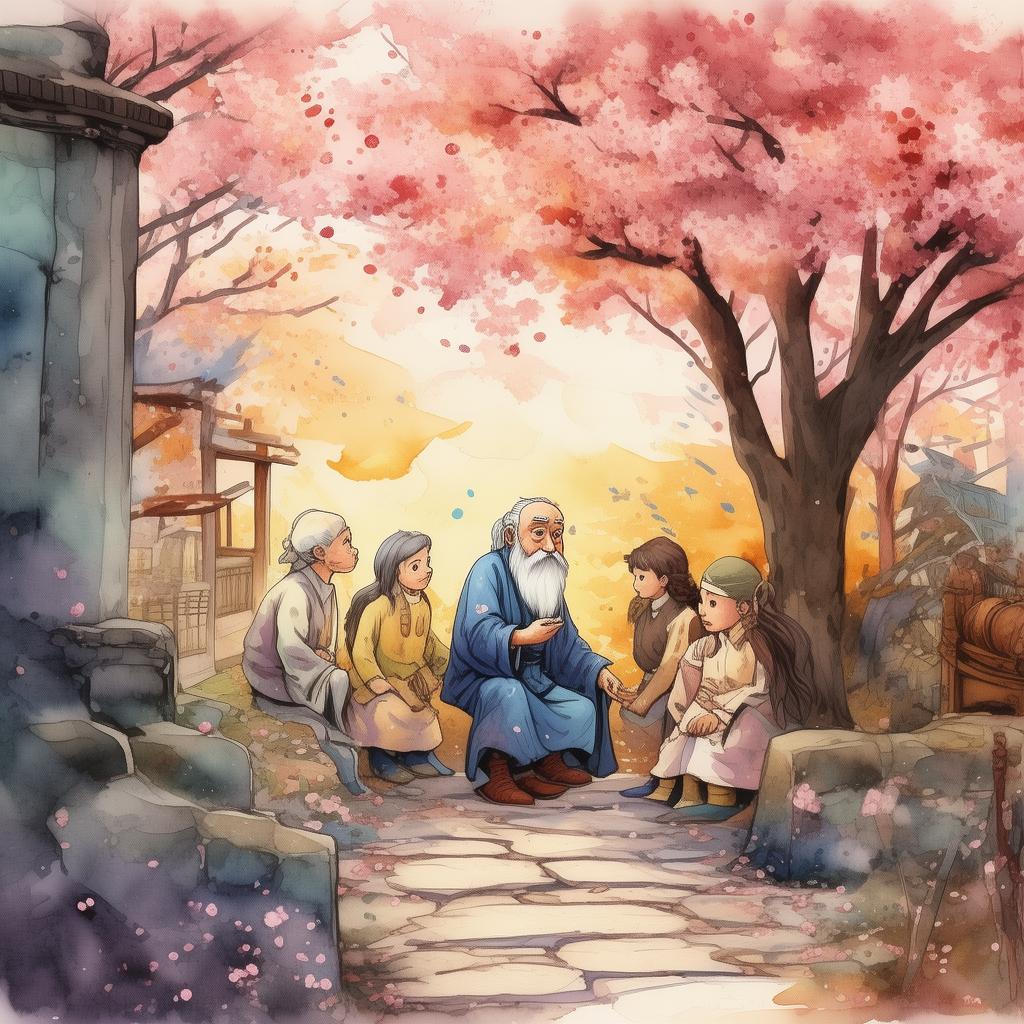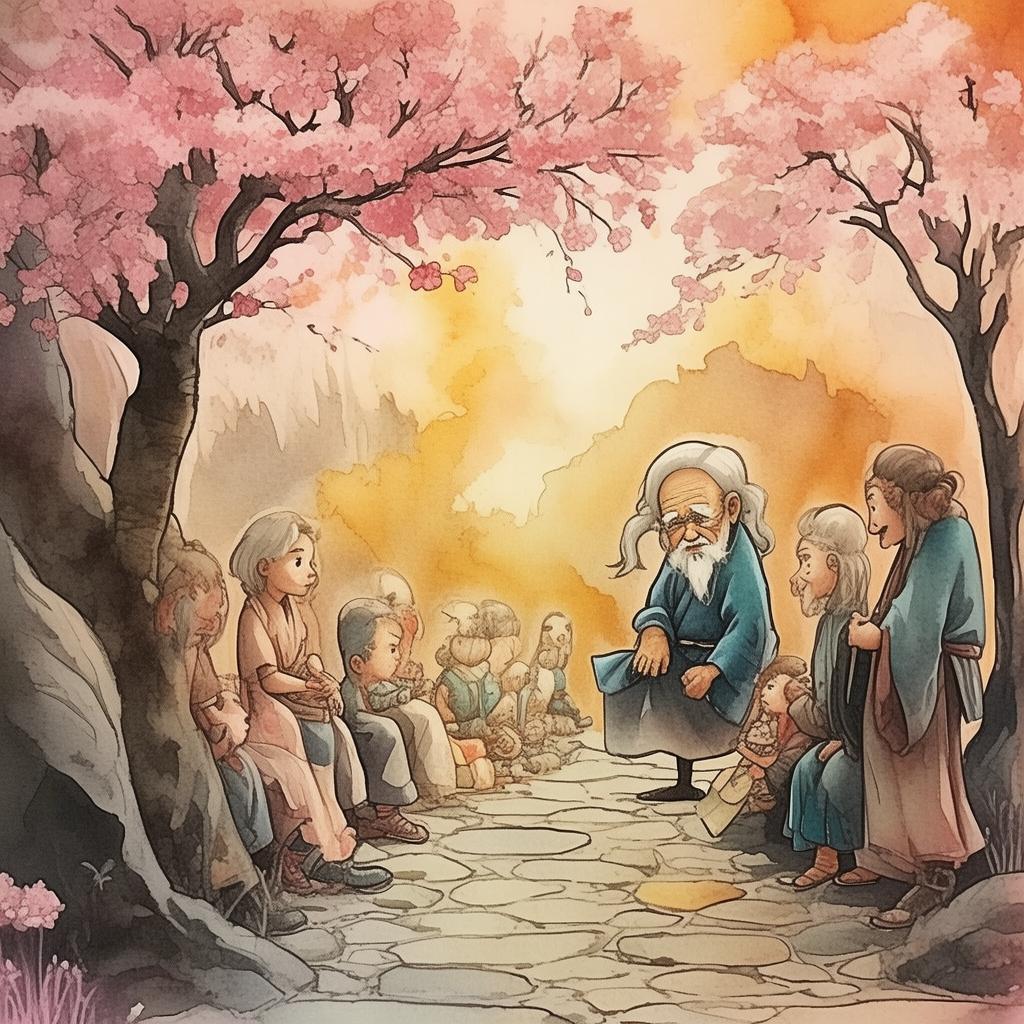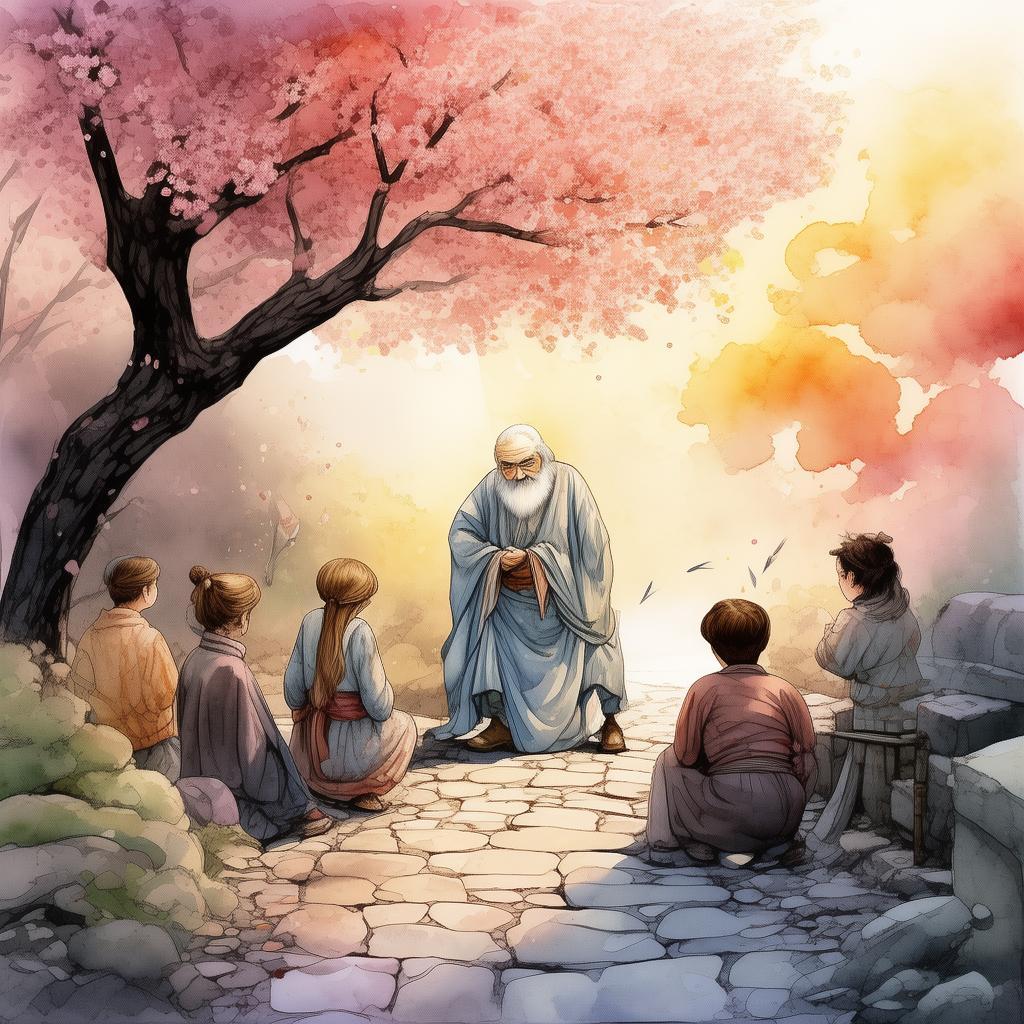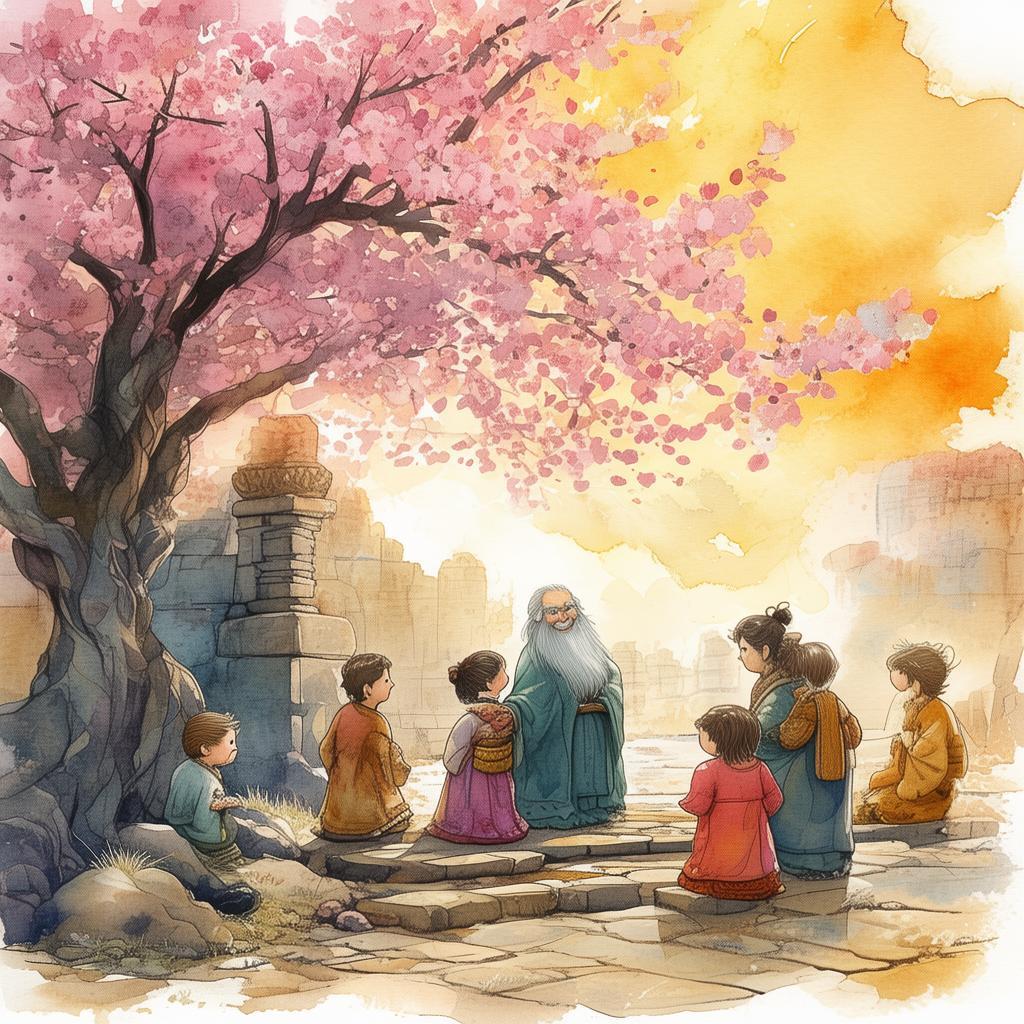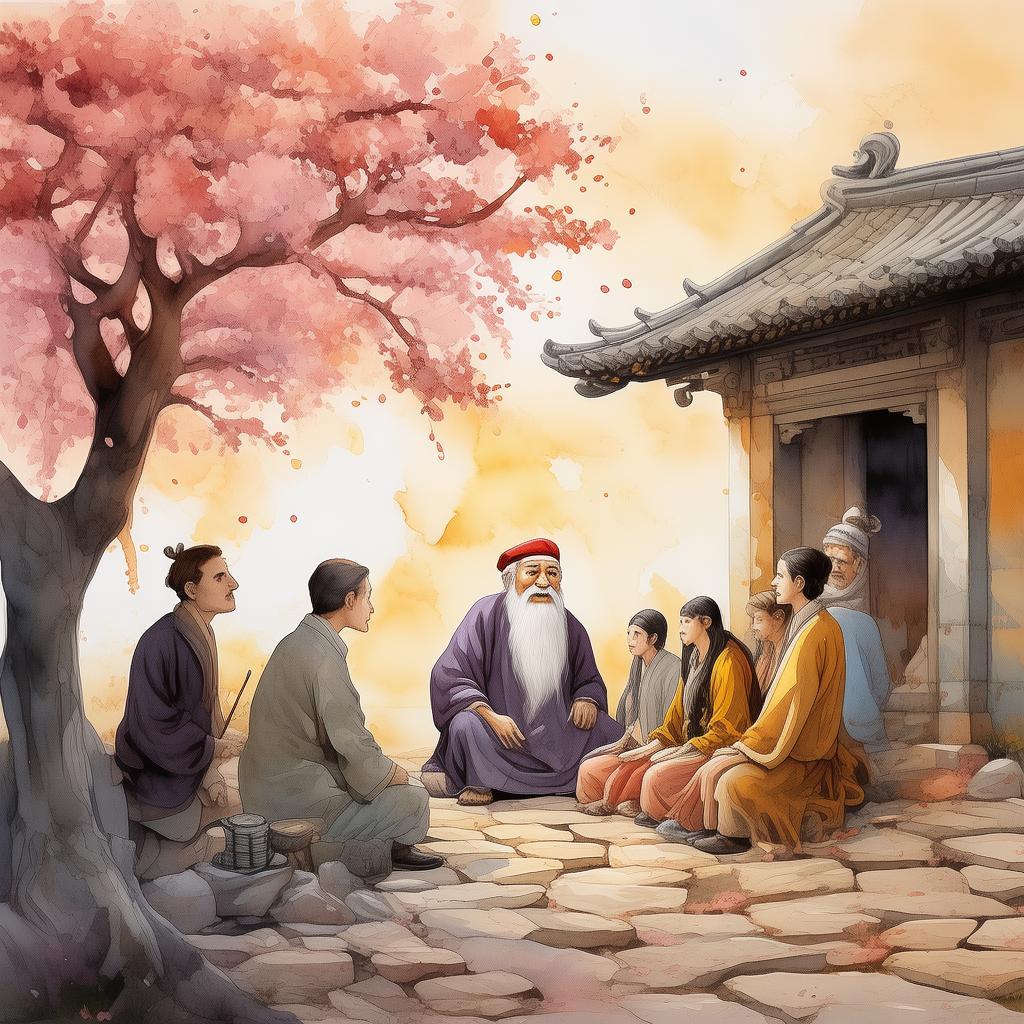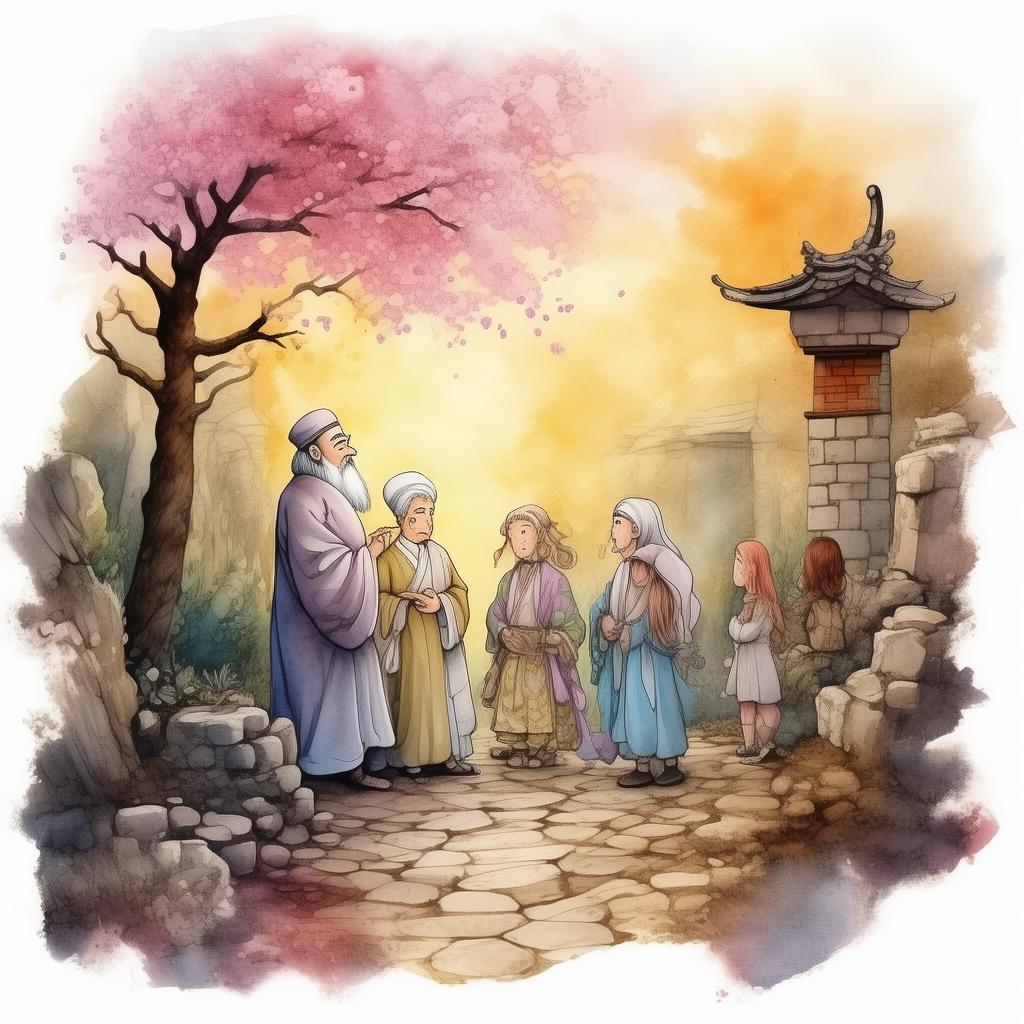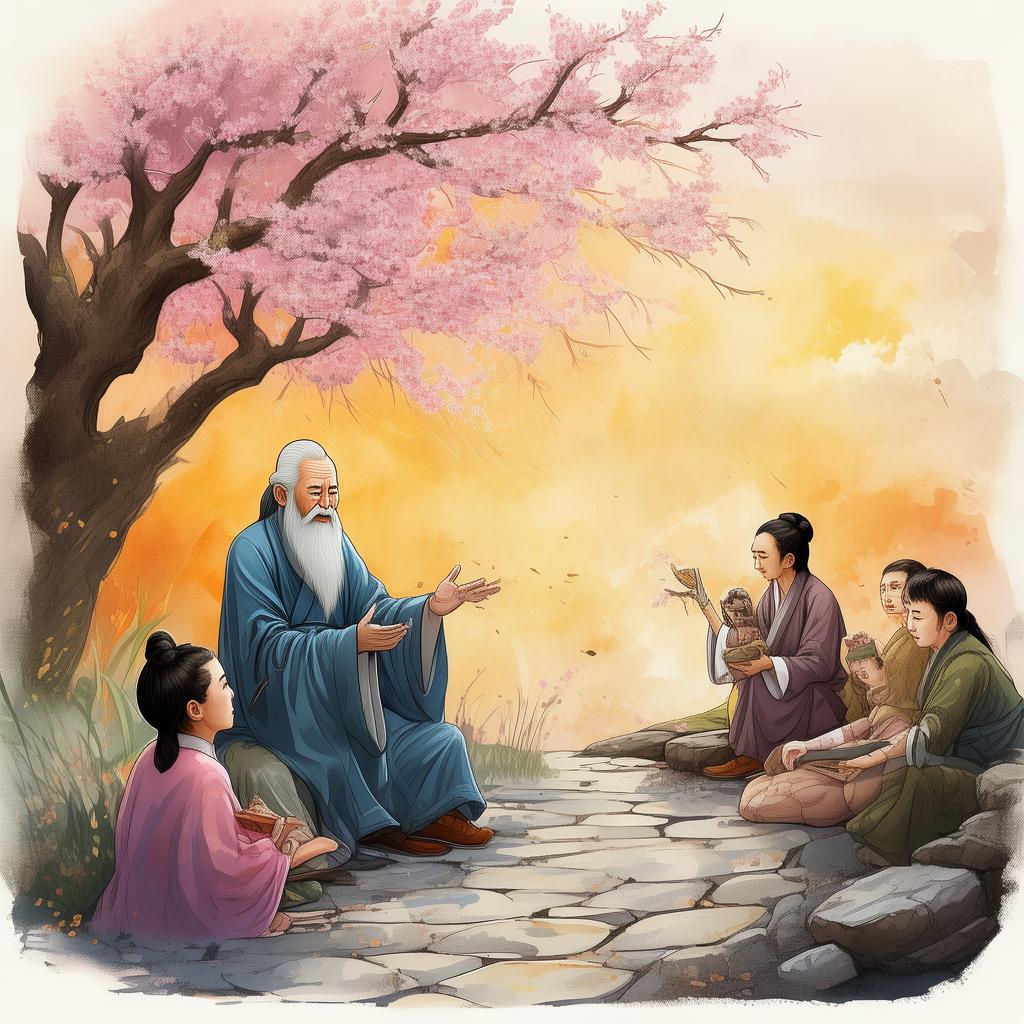Shadow of the Three: The Fourfold Illusion's Reveal
In the remote mountains of Song Dynasty China, the young monk, Wuxing, had spent years mastering the teachings of his sect, the Shaolin. He was known for his serene demeanor and sharp intellect, qualities that had earned him a position as the sect's most promising candidate for enlightenment. One evening, as the sun dipped below the horizon, casting long shadows across the temple grounds, Wuxing received a cryptic message: "The Fourfold Illusion is upon us, and only the pure of heart can unravel its mysteries."
Intrigued and driven by a sense of duty, Wuxing embarked on a journey to the capital, where the ancient texts spoke of the Fourfold Illusion. It was said to be a riddle that had eluded scholars for centuries, a puzzle that could reveal the true nature of reality and the purpose of existence. But as Wuxing ventured deeper into the capital, he soon realized that the path to enlightenment was fraught with deception and danger.
His first encounter came in the form of a wise old man named Master Hong, who was said to possess the knowledge of the Fourfold Illusion. Master Hong, with his piercing eyes and calm demeanor, seemed to know more than he was letting on. He presented Wuxing with a riddle that seemed simple on the surface but held a deeper meaning:
"I have a shadow, but I have no substance. I have a bed, but I have no place to rest. I have a heart, but I have no blood. What am I?"
Wuxing pondered the riddle, but Master Hong's words kept echoing in his mind: "The true answer lies not in the words, but in the heart." He left the temple that night, the riddle unresolved, and the weight of Master Hong's words pressing heavily on his spirit.
Days turned into weeks, and Wuxing's quest led him to a bustling marketplace, where he encountered a beggar woman with three children. The children, all with varying degrees of illness, were her only hope for survival. Wuxing, moved by their plight, offered to help. In exchange, the beggar woman shared a tale of her own: she had once been a princess, cursed by a sorcerer to live as a beggar. The sorcerer had given her a single wish, but she was bound by a moral dilemma: to use her wish to save her children or to restore her own lost life.
As Wuxing listened, he couldn't help but feel a connection to the beggar woman's struggle. He realized that the Fourfold Illusion was not just a riddle to be solved; it was a reflection of the moral dilemmas that plagued humanity. The beggar woman's story was a mirror, and in it, Wuxing saw his own struggle with the riddle Master Hong had given him.
Determined to find the answer, Wuxing continued his journey, encountering a trio of thieves who were also searching for the Fourfold Illusion's truth. The thieves, clever and cunning, believed that the riddle held the key to untold wealth and power. They were willing to do anything to uncover its secrets, even if it meant betraying each other.
The trio of thieves were a stark contrast to the beggar woman and her children. They were driven by greed and ambition, a stark reminder of the darker side of human nature. As Wuxing navigated the treacherous waters of their quest, he found himself torn between his own moral compass and the allure of the power the Fourfold Illusion promised.
One fateful night, Wuxing and the thieves found themselves face-to-face with Master Hong once more. The old man revealed that the Fourfold Illusion was indeed a riddle, but it was also a test. The true answer was not to be found in words or logic, but in the heart. Master Hong challenged Wuxing to choose between saving the beggar woman's children or the thieves, each of whom represented a different aspect of human nature.
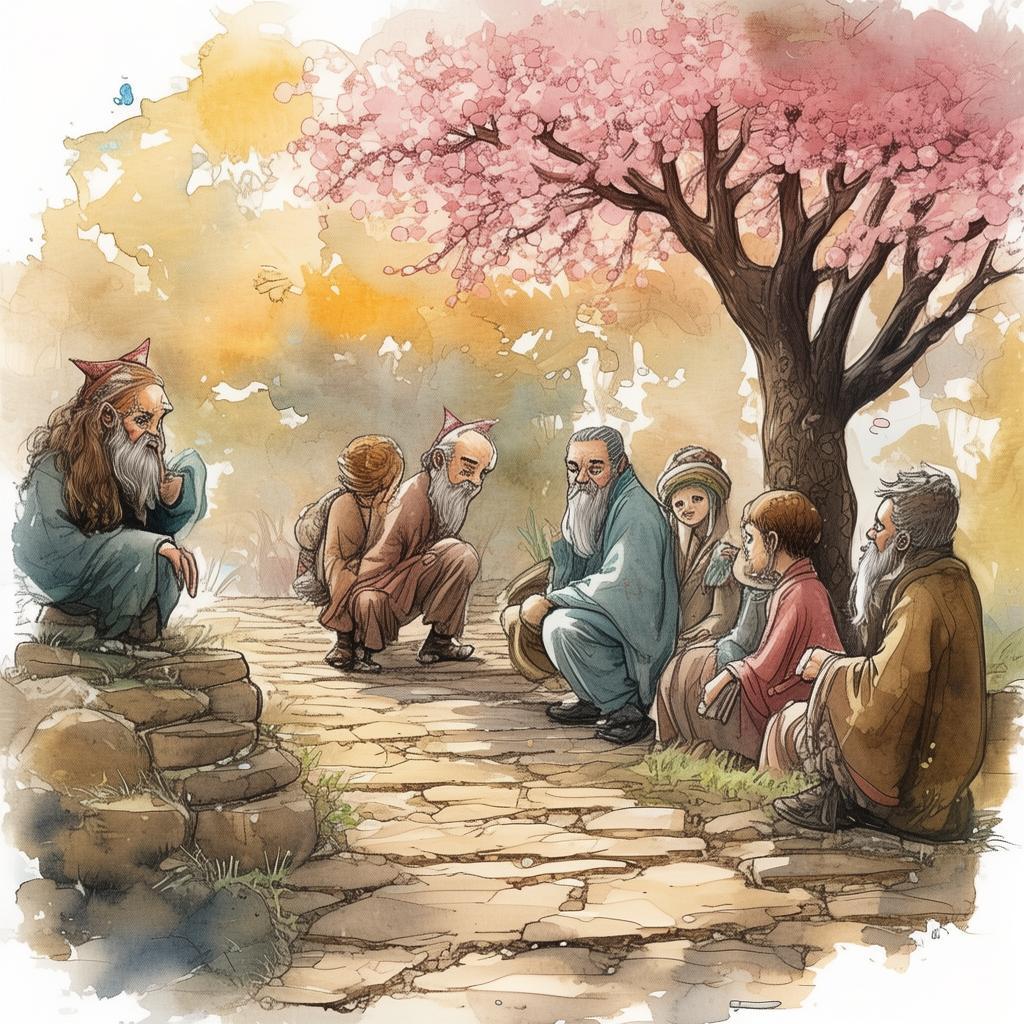
In a moment of clarity, Wuxing realized that the answer to the Fourfold Illusion was not about finding a single truth, but about embracing the complexity of life and the choices that define us. He chose to help the beggar woman's children, understanding that compassion and kindness were the truest reflections of the human spirit.
The thieves, faced with Wuxing's decision, were forced to confront their own greed and ambition. In the end, they too chose to help the children, their hearts touched by the young monk's selflessness.
As the Fourfold Illusion unraveled, the truth became clear: the answer was not in the riddle itself, but in the journey that led to its discovery. Wuxing, the beggar woman, and the thieves had all faced their own illusions, and in doing so, they had found a deeper understanding of themselves and the world around them.
In the end, the young monk returned to his temple, not as a master of the Fourfold Illusion, but as a wiser man who had learned that the true power of the human spirit lay in the ability to choose between right and wrong, even when faced with the most difficult decisions.
✨ Original Statement ✨
All articles published on this website (including but not limited to text, images, videos, and other content) are original or authorized for reposting and are protected by relevant laws. Without the explicit written permission of this website, no individual or organization may copy, modify, repost, or use the content for commercial purposes.
If you need to quote or cooperate, please contact this site for authorization. We reserve the right to pursue legal responsibility for any unauthorized use.
Hereby declared.
